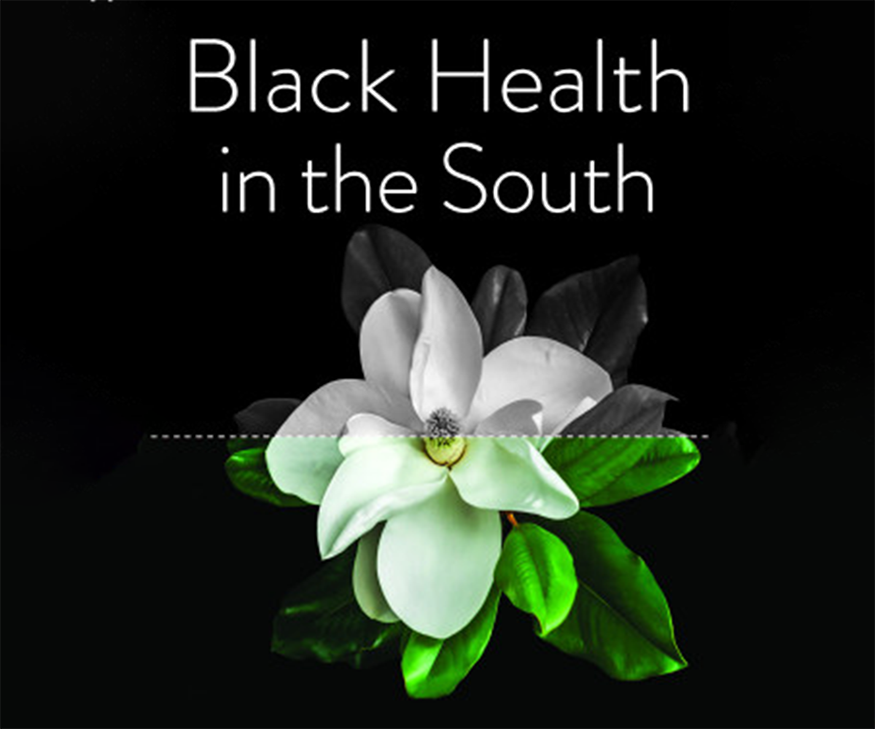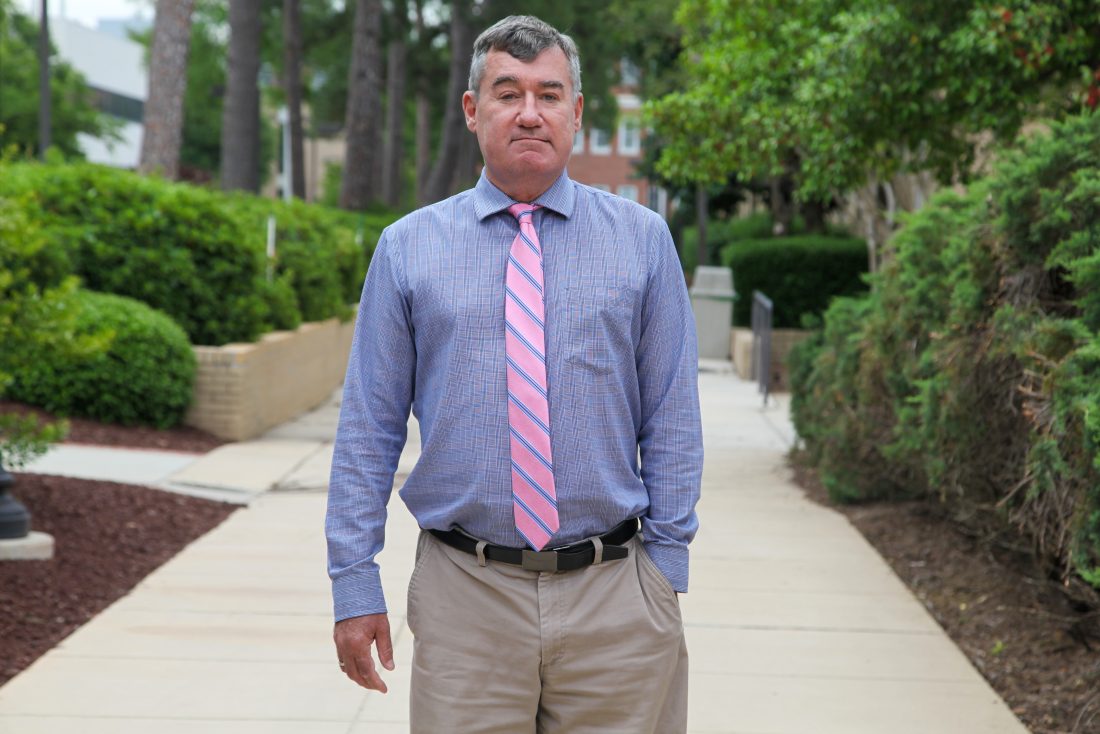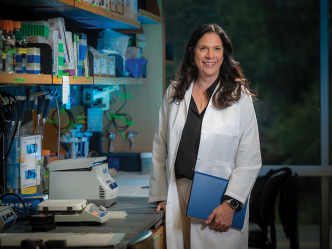Black Americans are often at greater risk to experience illnesses such as heart attack, stroke or cancer, in part due to many social and environmental factors. This is compounded by the fact that Black Americans have less access to quality health care to treat these illnesses, or are reluctant to pursue treatment due to a general mistrust of the health care community.
At the same time, Black communities are known for their many strengths and have proven to be resilient in battling structural inequities, in part due to community coalitions.
It’s a subject at the heart of numerous studies in recent years, brought to light even more during the COVID-19 pandemic, and Augusta University’s Steven S. Coughlin, PhD, has a new book titled Black Health in the South, published by Johns Hopkins University Press in Baltimore.

The book, which is scheduled to be released in March, pulls essays spanning topics from culturally appropriate health care to faith-based interventions and the role of research networks in addressing disparities. Coughlin said this collection is pivotal for understanding the health of African Americans in the South.
Coughlin, interim chief of the Division of Epidemiology in the Department of Population Health Sciences at the Medical College of Georgia at Augusta University, worked with Lovoria B. Williams, PhD, and Tabia Henry Akintobi, PhD, to publish the collection of 20 chapters.
Williams is the former director of the community advisory board for the Augusta University College of Nursing and Akintobi is a department chair at Morehouse School of Medicine in Atlanta.

[Michael Holahan/Augusta University]
“We’re excited about this book being released because we went beyond describing the health disparities among southern Blacks and included a lot of information on what causes the health disparities, and more importantly, what can be done about it,” Coughlin said.
“The experts who contributed to this book covered a variety of important topics, including social determinants of health like lack of transportation, lack of health care, insurance, poverty, living in racially segregated neighborhoods, and so forth.”
While speaking on the subject matter of the book, Coughlin noted that it didn’t make much sense to publish a book about the structural inequities unless there were also solutions provided to ensure Black Americans could gain access to the health care and support they need.
“We recommend providing evidence-based intervention that have been shown in intervention trials to improve health outcomes: increased screening, immunization, physical activity, that sort of thing,” Coughlin said.
“Some of the solutions that we pointed to were increasing the availability of quality, affordable health care, most notably primary care, and to provide more culturally competent, culturally appropriate health care.”
“There are initiatives here at Augusta University, for example, that are aimed at both providing culturally competent health care to minority populations and training health care providers.”
Steven S. Coughlin, PhD
Coughlin is quick to note that Black communities are resilient, possessing strengths that include tight-knit networks that help individuals survive.
The book features work by experts from 14 states, primarily located in the south, including nine faculty from Augusta University.
“I have been studying the disparities of Black communities for more than 20 years, including in cancer screening, incidence and mortality,” Coughlin said.
“The medical research community recognizes that Black Americans have a higher risk of a whole array of health conditions: HIV, obesity, diabetes, heart disease, kidney disease, maternal mortality, infant mortality, homicide, many mental health conditions. They face a lot of challenges, and these disparities are particularly bad in the southern United States, including Georgia and the CRSA. So, we invited contributors from several universities and research institutions to contribute chapters on particular topics, and I feel this book will provide a wealth of information.”
READ MORE: A Matter Of Life And Death
Coughlin contributed to three chapters, including the overview, a chapter on lung cancer and another titled Racism and Health: Implications for Health Disparities.
Ryan A. Harris, PhD, professor of medicine in the Department of Pediatrics and the Department of Physiology at MCG and The Graduate School at AU, and Gaston Kapuku, MD, associate professor in the MCG’s Department of Medicine, joined Coughlin and Williams on the chapter on racism and health.
Lufei Young, PhD, associate professor in the College of Nursing, contributed Chapter 6, Clinical and Community-Based Research Networks for Addressing Health Disparities.
Paul C. Mann, MD, associate professor of pediatrics, acting division head for Division of Pediatric Neonatology and director of clinical ethics for the Center for Bioethics and Health Policy, contributed a chapter on infant mortality.
Contributing to a chapter on maternal mortality were Marlo Vernon, PhD, assistant professor in the Department of Medicine; Colleen Walters, DNP, assistant professor in the College of Nursing; Samantha R. (Sojourner) Jones, PhD, assistant professor in the Department of Medicine; and Candace Best, PhD, associate professor in the Department of Psychological Sciences.
MORE RESEARCH: Cost of cancer treatment can impact health of survivors
“I think it is important and the book talks about the need to increase the number of Black physicians and health care providers. If you look at fields such as oncology, there’s relatively few Black oncologists compared to white oncologists. So, training more Black physicians and health care providers is key, especially so they can serve our rural areas where Black Americans are faced with even greater challenges in accessing quality health care.”
 Augusta University
Augusta University




